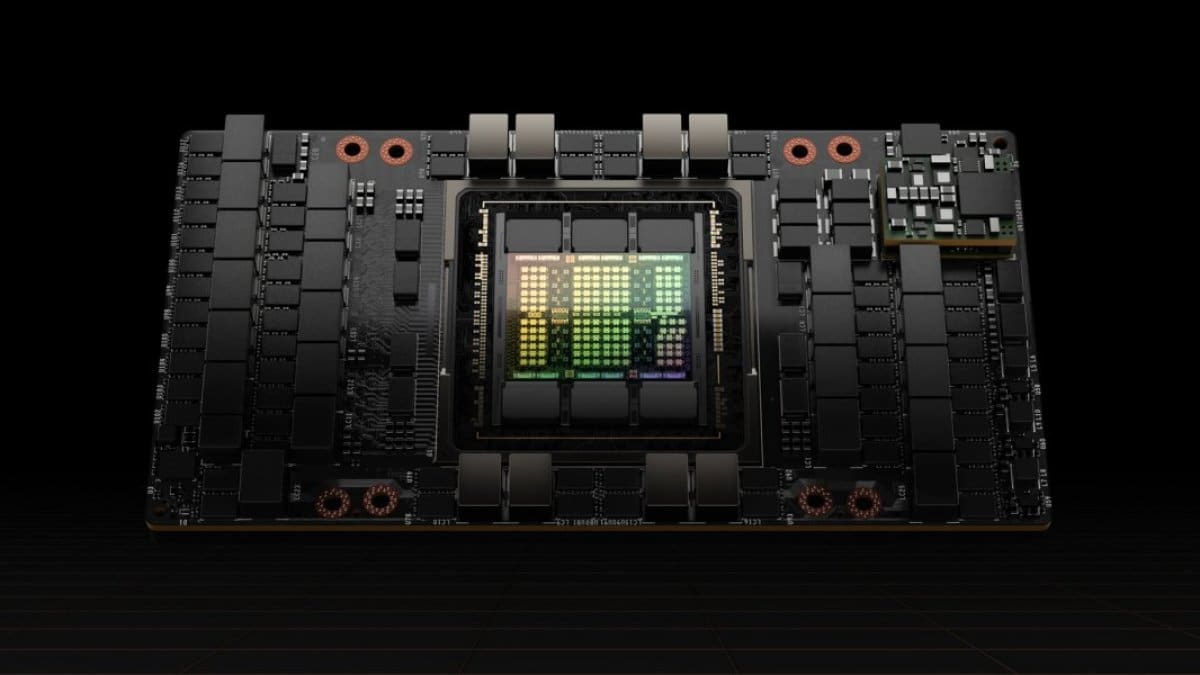The U.S. company NVIDIA has been compelled to issue public explanations following a controversy regarding the presence of tracking devices in shipments of servers and AI chips. The multinational asserts that “we do not install secret tracking devices in our products,” distancing itself from a practice that, according to various leaks, is being directly promoted by the U.S. government.
This incident occurs amid heightened technological and commercial tensions between Washington and Beijing, with AI chips at the center of the battle for control over the next generation of digital innovation.
Tracking devices added after production
The controversy started with reports indicating that certain hardware shipments, mainly servers equipped with NVIDIA and AMD GPUs, had been intercepted to add tracking devices. These units, sometimes about the size of a cellphone, were found both in packaging and inside servers from companies like Dell and Super Micro.
The purpose of these measures, coordinated by the Department of Commerce along with agencies such as the FBI and the Department of Homeland Security (DHS), is clear: to monitor the final destination of high-performance hardware and prevent it from ending up in unauthorized hands, primarily in China, through grey market channels.
Operations focus on “high-risk” shipments, which include large orders destined for neighboring countries like Singapore, from where some of the material could be diverted toward China.
NVIDIA distances itself from the issue
NVIDIA’s response was swift. In a brief statement, the company insisted that “the trackers do not come from our manufacturing processes or our direct supply chain,” but were apparently added later by government authorities.
The company disclaims any responsibility and emphasizes that practices like this could undermine international trust in American technology. “Installing hidden functionalities would compromise our global credibility and impact our business,” they had already stated weeks earlier regarding speculation about supposed “kill switches” or remote deactivation mechanisms.
China’s mistrust and the grey market
For Beijing, this matter is significant. The Chinese government has expressed concerns that U.S. hardware might contain hidden surveillance or remote deactivation features, posing strategic risks in key sectors such as defense, telecommunications, and AI research.
At the same time, NVIDIA’s launch of its H20 GPUs — specifically designed to meet Washington’s restrictions — has failed to convince Chinese companies. These limited-performance GPUs compared to their original versions are seen as “second-rate” products that hinder the country’s technological competitiveness.
In this context, many actors in China continue to turn to the grey market to access more powerful hardware free from possible limitations or backdoors, despite higher risks and costs.
The epicenter of tech rivalry
The debate over the traceability of AI chips exemplifies the geopolitical rivalry between the U.S. and China. On one side, Washington aims to control the flow of critical hardware to hinder China’s progress in supercomputing and AI. On the other, Beijing accuses the U.S. of using security as a pretext to impose economic restraints and maintain technological hegemony.
Mutual distrust fuels a spiral of measures and countermeasures. While NVIDIA seeks to clear its name, the issue reveals how AI chips have become a top geopolitical asset, comparable to oil or strategic minerals in past decades.
Frequently Asked Questions (FAQ)
1. Who is installing the trackers in AI GPU servers?
Various reports suggest that the trackers are added by U.S. government agencies, not by manufacturers like NVIDIA or AMD.
2. What is the U.S. aiming for with this measure?
The goal is to control the final destination of high-performance hardware and prevent its diversion to China through intermediaries.
3. Why is this concerning for China?
Beijing fears U.S. hardware could contain hidden surveillance or remote deactivation mechanisms, risking national security.
4. How does this affect the AI chip market?
It heightens geopolitical tensions and boosts the grey market in China, while eroding global trust in U.S.-supplied technology.
via: Windows Central

